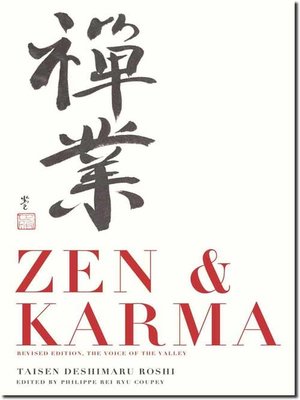
Sign up to save your library
With an OverDrive account, you can save your favorite libraries for at-a-glance information about availability. Find out more about OverDrive accounts.
Find this title in Libby, the library reading app by OverDrive.



Search for a digital library with this title
Title found at these libraries:
| Library Name | Distance |
|---|---|
| Loading... |
Taisen Deshimaru (1914-1982) was a Japanese Zen Master, and the individual largely responsible for bringing Soto Zen to Europe. A legendary figure, widely acknowledged throughout the Zen world, he stands in the ranks of the great Zen teachers of modern times, including, Suzuki Roshi, Maezumi Roshi, and others. This second edition of his book The Voice of the Valley, first issued in 1979, contains the pure Deshimaru vintage-teaching. Uniquely, it is one of the few Zen books treating the subject of karma, a principle deeply entrenched in Hindu and some Buddhist traditions, but rarely taught within Zen. Karma generally refers to the principle of cause and effect, acknowledging that each individual will “reap what they sow,†whether in this lifetime or some future life. Deshimaru, however, explains that this doctrine really has nothing to do with a simple good or bad balance-chart for the individual person, but rather concerns the activity of humanity as a whole. He highlights the necessity for clearly seeing one’s own thinking, which is creating the hell that we and others endureâ€







